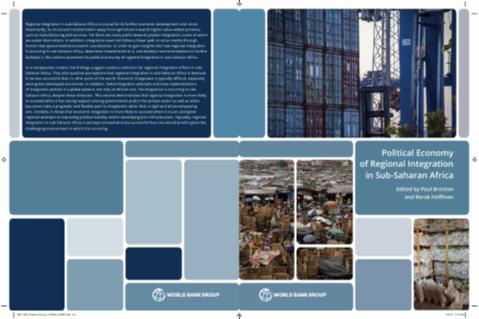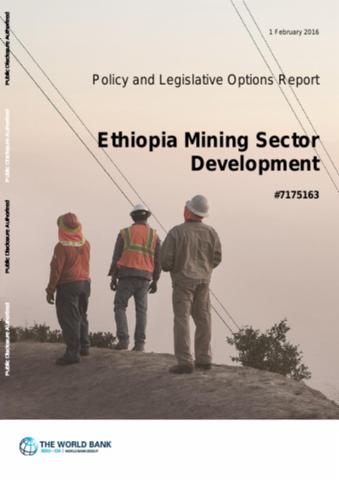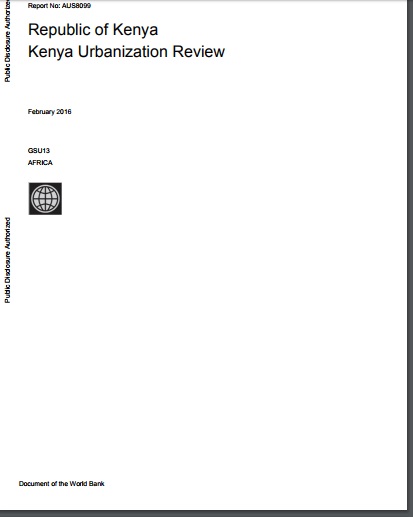The World Bank is a vital source of financial and technical assistance to developing countries around the world. We are not a bank in the ordinary sense but a unique partnership to reduce poverty and support development. The World Bank Group has two ambitious goals: End extreme poverty within a generation and boost shared prosperity.
- To end extreme poverty, the Bank's goal is to decrease the percentage of people living on less than $1.25 a day to no more than 3% by 2030.
- To promote shared prosperity, the goal is to promote income growth of the bottom 40% of the population in each country.
The World Bank Group comprises five institutions managed by their member countries.
The World Bank Group and Land: Working to protect the rights of existing land users and to help secure benefits for smallholder farmers
The World Bank (IBRD and IDA) interacts primarily with governments to increase agricultural productivity, strengthen land tenure policies and improve land governance. More than 90% of the World Bank’s agriculture portfolio focuses on the productivity and access to markets by small holder farmers. Ten percent of our projects focus on the governance of land tenure.
Similarly, investments by the International Finance Corporation (IFC), the World Bank Group’s private sector arm, including those in larger scale enterprises, overwhelmingly support smallholder farmers through improved access to finance, inputs and markets, and as direct suppliers. IFC invests in environmentally and socially sustainable private enterprises in all parts of the value chain (inputs such as irrigation and fertilizers, primary production, processing, transport and storage, traders, and risk management facilities including weather/crop insurance, warehouse financing, etc
For more information, visit the World Bank Group and land and food security (https://www.worldbank.org/en/topic/agriculture/brief/land-and-food-security1
Resources
Displaying 516 - 520 of 4907Toward a Green, Clean, and Resilient World for All
The new environment strategy for the
World Bank Group lays out an ambitious action agenda that
seeks to respond to calls from our client countries for a
new kind of development path, one that supports growth while
focusing more on sustainability and ensuring that the
environment is a key enabler for green, more-inclusive
growth. This strategy recognizes the importance of our
convening power, access to policy makers, analytical work,
How to Protect and Promote the Nutrition of Mothers and Children
The nutrition cluster is a very
important entity to coordinate actions during emergencies.
It is important that the nutrition cluster know in advance
which institutions work where and what kind of inputs are
pre-positioned. Risk management plans need to be ready at
the local level in advance of emergencies. Although
emergencies occur every year in Guatemala, the emergency
response often fails to incorporate the management of
Political Economy of Regional Integration in Sub-Saharan Africa
Regional integration in sub-Saharan Africa (SSA) is crucial for its further economic development and, more importantly, its structural transformation away from agriculture towards higher value-added activities, such as manufacturing and services. Yet there are many paths towards greater integration, some of which are easier than others.
Ethiopia Mining Sector Development
Ethiopia has many advantages as a destination for mining investment. These include promising geology, a well-designed fiscal regime, stable government and a growing domestic market. Additionally, it has a well-managed and successful artisanal and small scale mining sector. Under the second phase of Ethiopia’s Growth and Transformation Plan, Ethiopia has the ambitious target for the mining sector to contribute 10% of GDP by 2025. Ethiopia must overcome significant challenges to achieve this target.
KENYA URBANIZATION REVIEW
The story of urbanization in Kenya should be one of cautious optimism. As an emerging middle-income country with a growing share of its population living in urban areas and a governance shift toward devolution, the country could be on the verge of a major social and economic transformation. How it manages its urbanization and devolution processes will determine whether it can maximize the benefits of its transition to a middle-income country.









